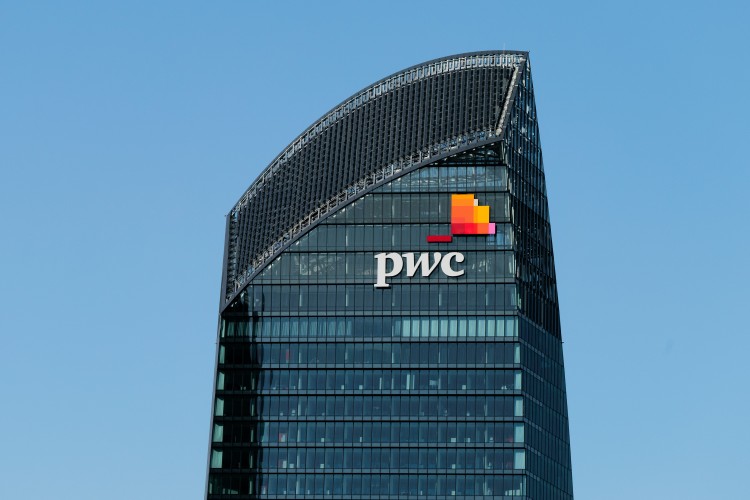
Accounting major PwC may have to cease operations at some offices in China as Beijing is considering imposing record fines on PricewaterhouseCoopers LLP as soon as this week. The global auditor’s local operations may also be halted due to its role in one of the nation’s biggest alleged financial fraud cases, as PwC is suspected of missing significant financial irregularities. PwC faces a fine of at least 1 billion yuan ($138 million). The previous record fine was 212 million yuan, imposed on Deloitte Touche Tohmatsu Ltd in 2023.
PricewaterhouseCoopers was the auditing firm for China Evergrande Group for over a decade until it resigned in January 2023 due to what the developer described as audit-related disagreements. The audit firm has faced intense scrutiny following China’s massive investigation into potential financial fraud by property developer Evergrande. Earlier this year, Evergrande was fined 4.18 billion yuan. Its main unit, Hengda, had overstated its revenue by 564 billion yuan over two years through 2020.
READ | Rating upgrade: India’s election-proof economy gets S&P’s thumbs up
Impact on PwC
PwC’s case will have a lasting damaging impact on its reputation and public confidence in accounting. Industry insiders believe that the market share of global auditing firms in China will shrink due to this incident. Several of PwC’s Chinese clients have already cut ties, and more than a dozen firms have stopped using PwC’s services in the last two years. Notable clients include China Taiping Insurance Holdings Co, China Merchants Bank Co., and People’s Insurance Company (Group) of China Ltd.
Among the Big Four accounting firms—Deloitte, KPMG, Ernst & Young, and PwC—the latter was one of the most commonly employed by Chinese real estate firms listed in Hong Kong. PwC had major clients like Country Garden Holdings Co. and Sunac China Holdings Ltd before they defaulted on their debt. PwC’s mainland Chinese arm had more than 1,600 certified accountants and reported revenue of 7.9 billion yuan ($1.1 billion) in 2022. Among 9,000 local rivals, PwC was the top earner. Globally, the company reported a revenue of $50.3 billion during the year.
The auditing market is highly segmented, dominated by the Big Four accounting firms, along with smaller rivals Grant Thornton and BDO. Their combined global revenue is around US$120 billion, and the “too big to close” syndrome prevents effective regulatory retribution.
Regulatory context
The penalties against PwC align with President Xi Jinping’s recent push to control financial risks and crime in the world’s second-largest economy. The Chinese government aims to ensure the stability of the economy. Xi has emphasised the need for stricter regulations and stronger enforcement from financial watchdogs and local governments.
Despite its success, PwC has encountered issues in other jurisdictions. It faced conflict with the Australian government over a serious conflict of interest in leaking government tax plans to its clients, prompting PwC to pledge improved governance controls in Australia. In the UK, PwC was fined £5.6 million for failures in auditing Babcock International Group Plc. In Hong Kong, the Financial Reporting Council announced in 2022 that it was investigating Evergrande’s 2020 financial statements and expanding its investigation into PwC’s audit.
Liability of auditors
Auditors have a professional and moral responsibility to ensure the accuracy of their clients’ financial statements to protect stock and bond investors. However, since they receive audit fees from their clients, auditors may sometimes be tempted to overlook misstatements. Although the accounting sector has established rules for auditors, failures still occur.
In PwC’s case, the firm served as Evergrande’s auditor for 14 years between 2009 and 2023, giving unqualified opinions on Evergrande’s financial statements. This suggests that even if Evergrande failed to follow regulations at times, PwC’s statements gave it a clean bill of health. PricewaterhouseCoopers continued to clear Evergrande’s financial reports until defaults were reported by the media in August 2021. PwC defended itself by stating that Evergrande failed to provide necessary information.
In October 2021, the AFRC launched investigations into Evergrande’s financial statements for 2020 and the first half of 2021, as well as PwC’s audit report for Evergrande’s 2020 annual results. The AFRC has yet to determine whether PricewaterhouseCoopers violated any professional rules.
The silence of auditors during financial crises is well-documented, yet little effective action has been taken. No auditing firm has returned fees for deficient audits. Earlier this year, nearly six years after the banking crash, a US auditing regulator reported that over one in three audits inspected were deficient and lacked sufficient evidence for auditors to reach a conclusion.
The standard response from the auditing industry to criticism has been denial or minor adjustments to auditing standards, codes of ethics, and promises of tougher actions against laggards. However, these solutions are inadequate. Poor audits are a systemic problem, as auditing firms, acting as the private police force of capitalism, are not subjected to the pressures and incentives usually associated with the private sector.
While the matter is still being investigated, PricewaterhouseCoopers had a duty to review the company’s financials in accordance with the generally accepted standards of the audit profession. If found guilty, the authorities are obliged to impose the harshest penalties on the audit firm. In the absence of fair audits, investors may invest in companies with inflated financial performance, risking their hard-earned money and eroding trust in the financial system.
